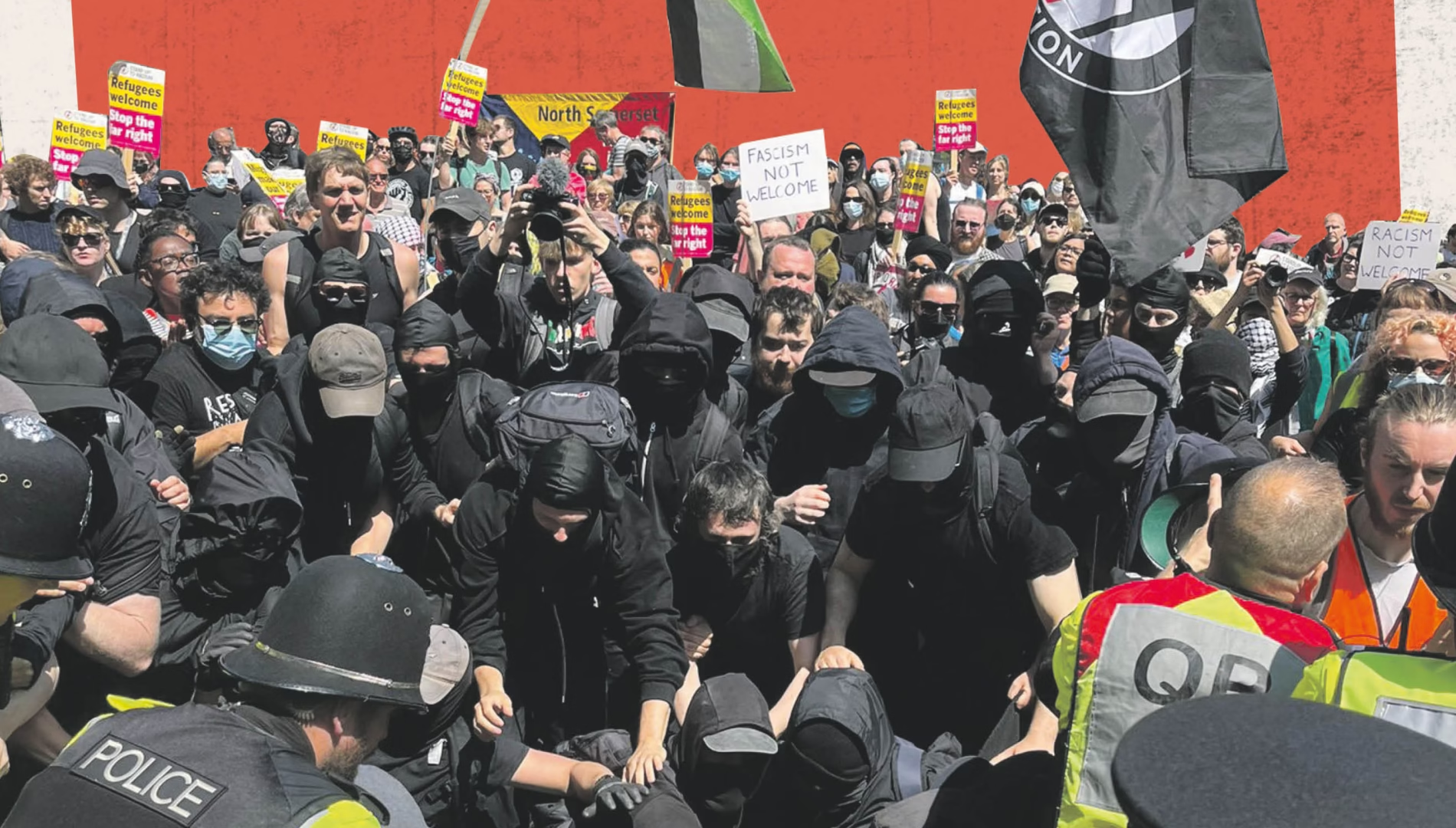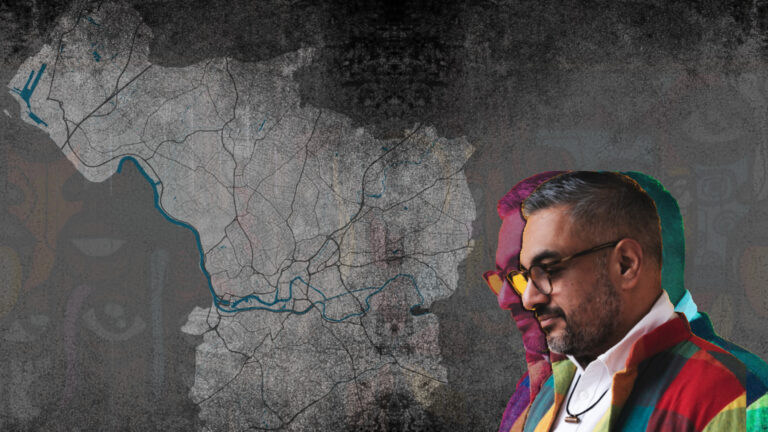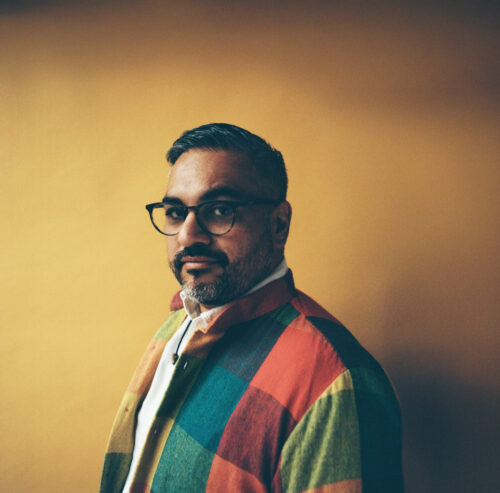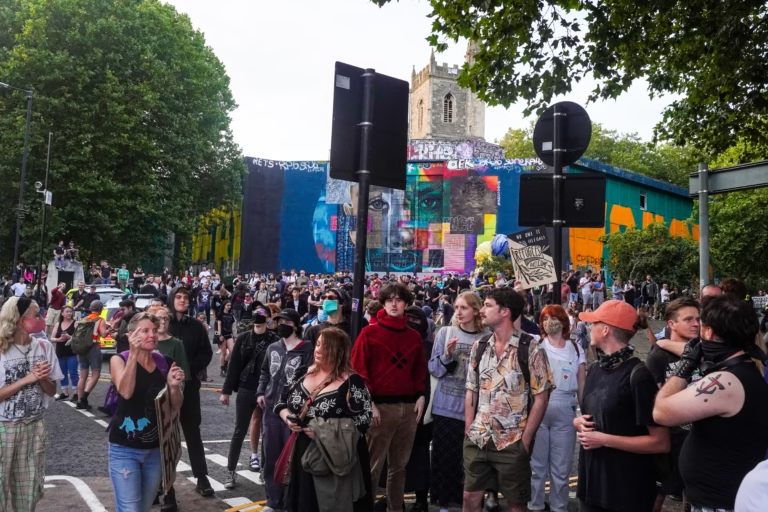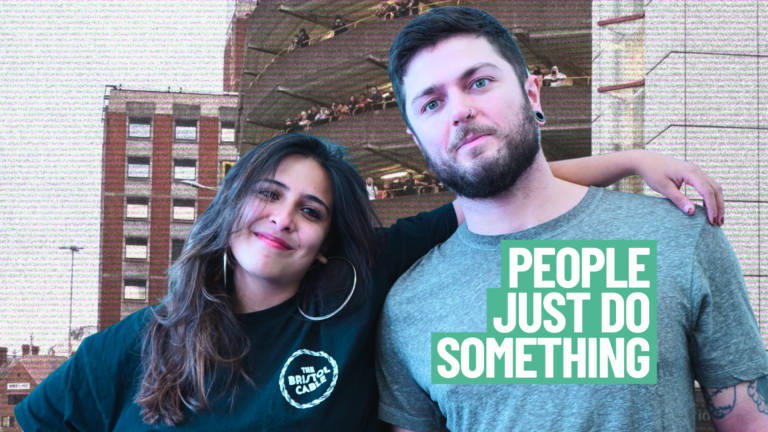Content warning: This conversation contains references to male sexual violence against women and children.
How did you first get involved in antifascist activism?
I actually can’t remember the first anti-fascist demo I went on. I’ve been doing this for 20 years. I feel a strong moral compulsion to act. I see a lot of things that are wrong with the world, and one of those things is when vulnerable and marginalised communities are attacked.
How do you define fascism? And what do you think it looks like in the UK in 2025?
Fascism is slippery, intentionally so. It cherry-picks from ideas throughout history, even if they’re contradictory, to avoid being pinned down. In Britain today, it exists as a complex ecosystem of groups that often clash with each other as much as with their declared enemies. But they share key traits: they’re deeply violent and pursue power for its own sake. They are fixated with this imagined “other” that they portray as degraded and weak, and yet also an all-powerful threat.
What is the main aim of Bristol Antifascists?
The immediate purpose is to engage in direct opposition to street-level fascism – to recognise where there is a direct threat by far-right groups to marginalised communities, and to put ourselves in the way of that.
Are there far-right groups that you’re monitoring in Bristol?
Yes, there’s a whole alphabet soup of them! The Democratic Football Lads Alliance – born from the English Defence League – still push that football hooligan, street-level fascism. They recently rebranded as Football Lads Against Grooming Gangs.
Patriotic Alternative, led by former BNP youth organiser Mark Collett, is essentially neo-Nazi and seems heavily infiltrated by ex-National Action members (before that got proscribed as a terrorist organisation after Jo Cox was murdered). A splinter group, the Homeland Party, is now taking a more BNP-style electoral route.
Then there’s the Great British National Strike – now renamed Great British National Protest, since it’s not actually a strike – and of course, UKIP and Nick Tenconi.
Most recently, we’ve been monitoring a weird new group called The Shield — a vigilante-style group made up of self-described outlaw bikers and ex-soldiers.
Which groups do far-right ideas appeal to?
A lot of the narrative around last year’s riots assumed the far-right crowd were all working class. But many of those arrested or sentenced aren’t. They cling to working-class signifiers —football culture especially — but many are buy-to-let landlords or small business owners with scaffolding crews and top 5% incomes. You don’t get a Range Rover and a Chelsea season ticket if you’re struggling for cash.
Are these movements predominantly led by men? What’s the link between masculinity and the far right?
The far right does skew male, especially in its more violent elements — which is predictable, given how men are socialised.
But women are increasingly visible at demos. We’re seeing the rise of groups like the Women’s Safety Initiative, linked to the Great British National Protest, who use suffragette-style feminist aesthetics to promote a deeply regressive view of women’s roles.
These protests often feature talk of ‘British men standing up for our women,’ with a heavy focus on grooming and ‘rape gangs’. There’s a clear crossover between patriarchal and white supremacist attitudes. The far right is riddled with rapists and child abusers — research from groups like Hope Not Hate and Red Flare shows how many have convictions for sexual offences.
But they don’t see themselves as abusers. They view white women and children as their property. When they accuse men of colour of being rapists or paedophiles, it’s not framed as violence against the victims — but as theft from them. A violation of what they see as theirs.
Physical confrontation is part of anti-fascist activism. How do you keep yourself and others safe on the ground?
There is a real risk of violence involved — we’re not just talking about people having a bit of a go, but the far right showing up with weapons. What keeps us safe is that we’re more disciplined than they are. They don’t communicate, train, or look out for each other — we do. We train together once a week and have systems in place to keep each other safe.
You can’t guarantee your safety. So anyone who shows up thinking, “I’m not going to get involved in any confrontation,” could still have violence done to them. You don’t get a choice in it.
Bristol Antifascists sometimes use black bloc tactics – can you explain what that means?
There are levels to it. Most of the time, we use ‘grey bloc’ — nondescript clothes like sunglasses, masks, caps, and hoods to avoid being identified by the far right.
These groups have live streamers who dox people — tracking names, addresses, jobs — to harass, intimidate, and sometimes do outright violence.
Black bloc is a heavier version, mainly to shield against state surveillance. It won’t fool a cop who knows your eyes, gait, or if you’ve been around a while, but it makes it much harder to be identified in court, where juries and magistrates don’t know your face.
What would you say to people who might be intimidated by seeing a group of masked up people at a demonstration?
The thing about black bloc is that it is intimidating – but that’s the point. But it keeps the police guessing. It keeps the far right guessing. When we opposed UKIP in June 2025, a small group willing to face violence achieved a lot – and appeared much larger because everyone wore black bloc gear.
It’s not meant to intimidate the public – that’s an unfortunate side effect – and we do hand out flyers and talk to people to explain it. But the intimidation works. It helps deter fascists from violence because they don’t know what to expect.
What would you say to people who want to oppose the far right but don’t feel safe joining demonstrations or getting into physical confrontations? Are there other ways to get involved?
Absolutely. We always need first aiders and legal observers. I’d recommend going to Green and Black Cross for legal observer training. Groups like Bristol Defendants Solidarity support arrested protesters, whether it’s antifascist, Kill Bill, or Black Lives Matter actions — and they’re always short-staffed. That kind of support is crucial as well.
Independent. Investigative. Indispensable.
Investigative journalism strengthens democracy – it’s a necessity, not a luxury.
The Cable is Bristol’s independent, investigative newsroom. Owned and steered by more than 2,600 members, we produce award-winning journalism that digs deep into what’s happening in Bristol.
We are on a mission to become sustainable, and to do that we need more members. Will you help us get there?
Join the Cable today